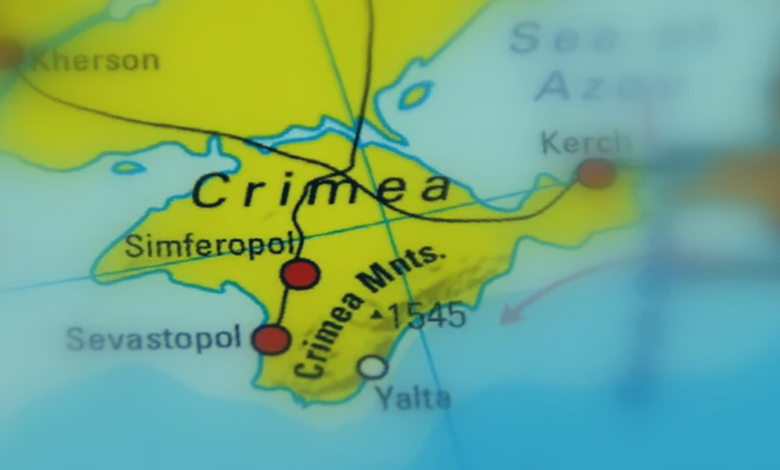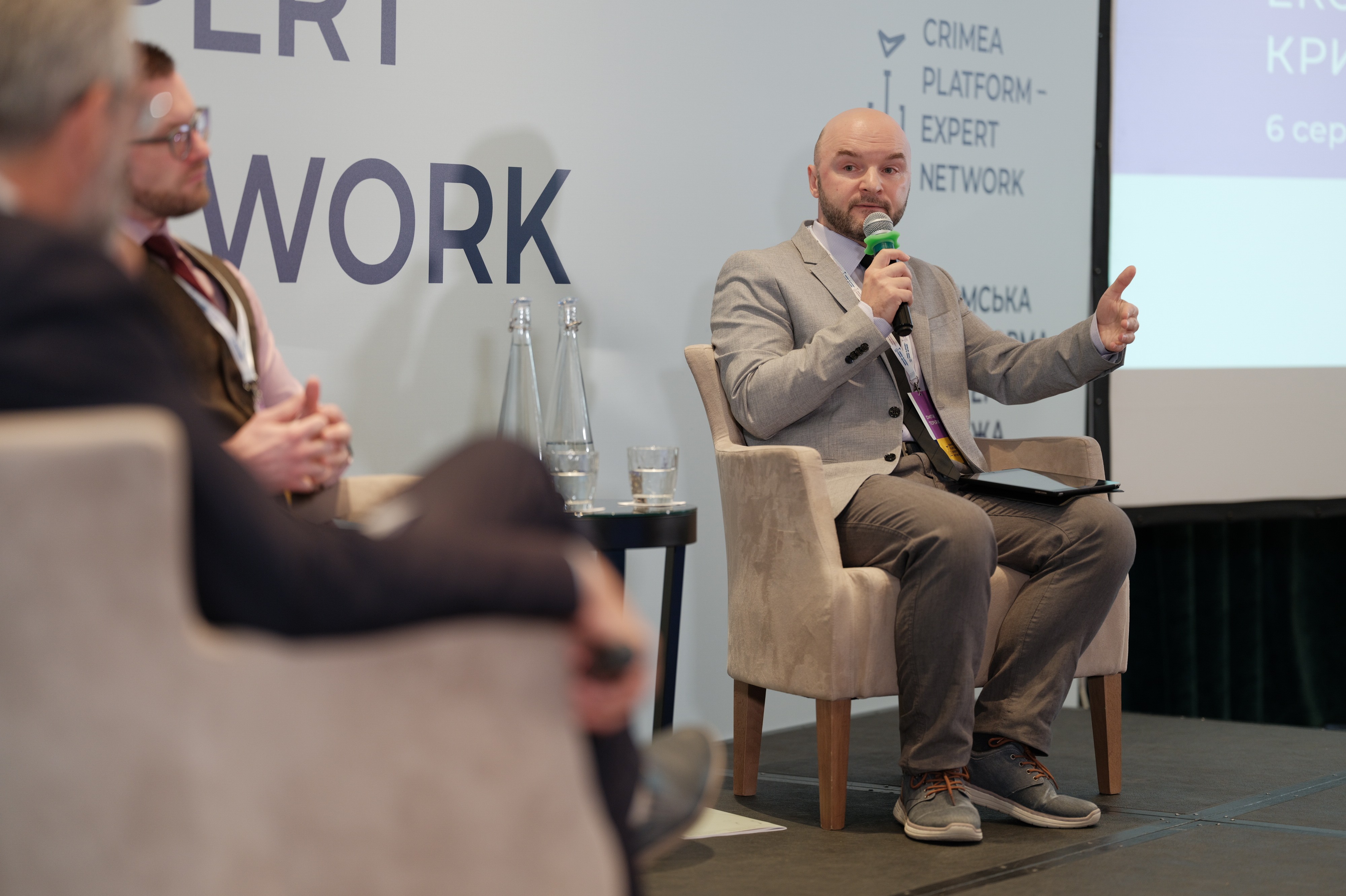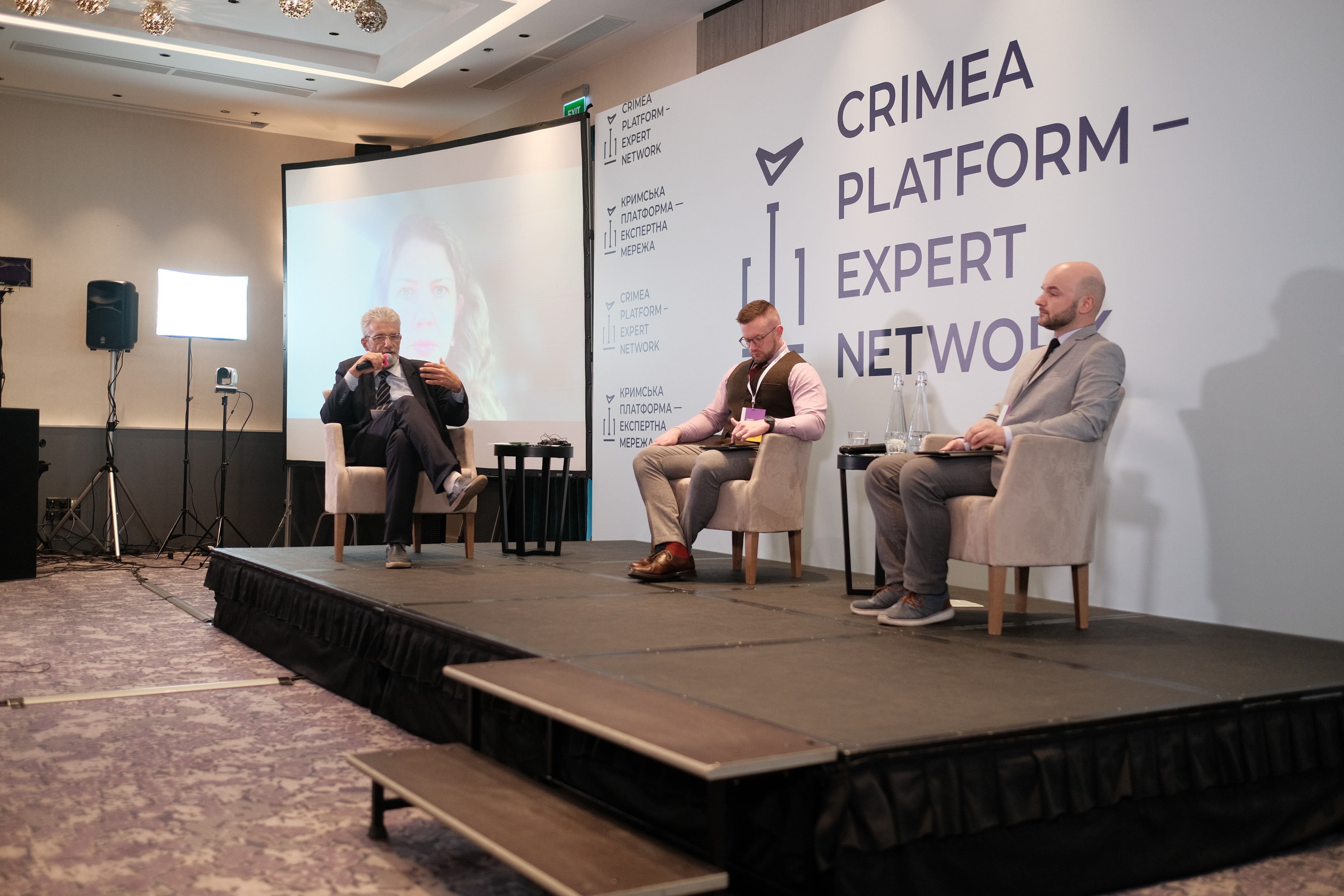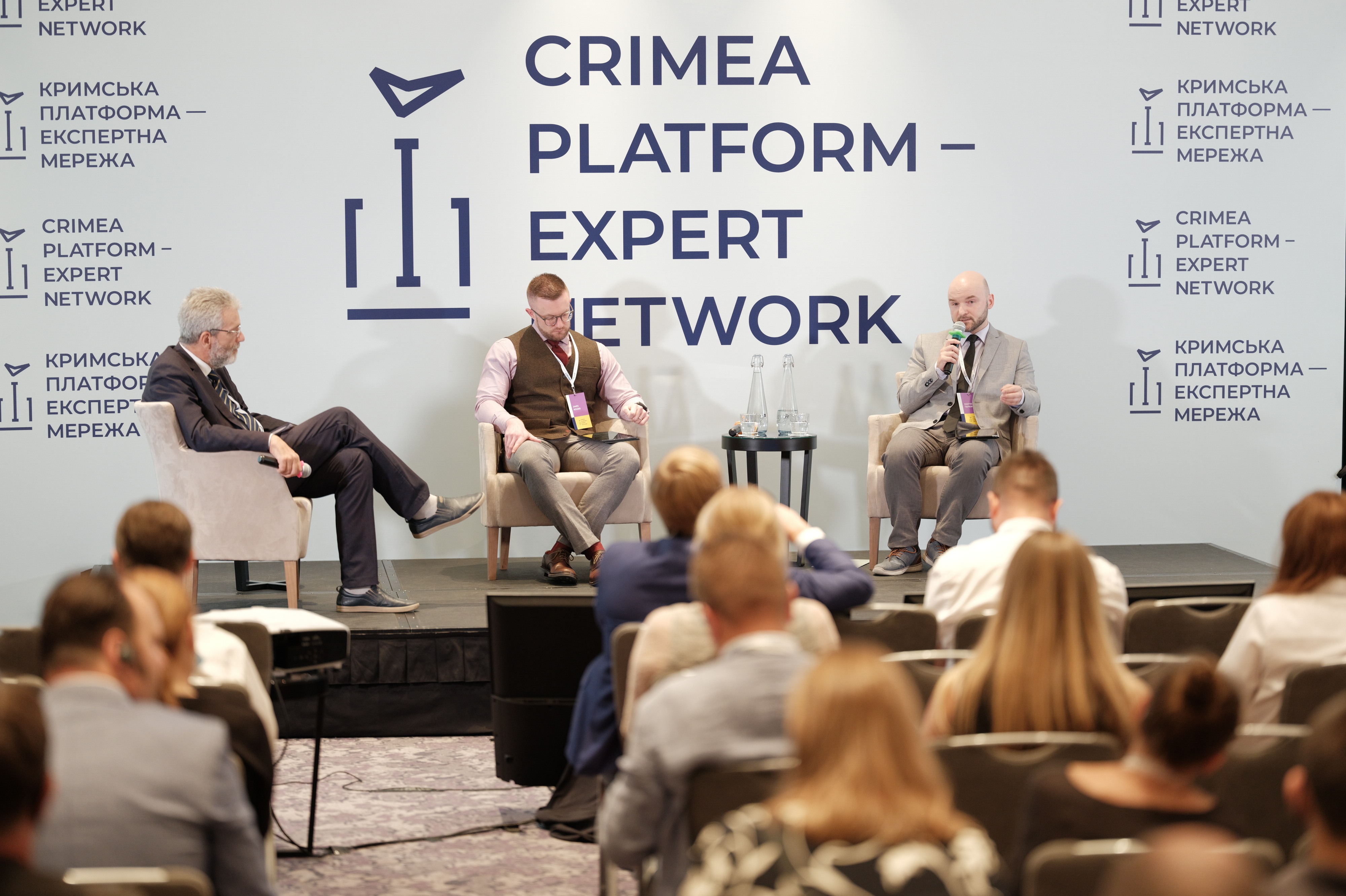Inaugural Forum of the Expert Network for the Crimean Platform took place in Kyiv, August 2021

The International Forum of the Expert Network was the first event held within the framework of the Crimean Platform in Kyiv on 6 August 2021.
Director of the Estonian-Ukrainian Development Cooperation Programme “Resilient Ukraine” Dmitri Teperik participated as one of the speakers at a panel session “De-occupation of Crimea in the international information sphere”.
The expert noted goals of the Crimean Platform are to preserve and maintain an opportunity to react to challenges of the occupation as well as the level of preparedness for the de-occupation of the peninsula. “Our task is to prepare ourselves for de-occupation as it may happen at any time”, Dmitri Teperik stated.
Programme Director “Resilient Ukraine” also suggested three practical steps that would facilitate a better level of preparedness for de-occupation of Crimea. The first one is dissemination of information about Crimea via Crimean people’s ambassadors who should include both civil society organizations and single individuals. Referring to the recent past, Dmitri Teperik stressed Estonian experience in promotion of national interests abroad through friends of Estonia during the Soviet occupation. The expert highlighted that ambassadors of Crimea should not limit themselves only to communication with the Western countries. “Given the modern geopolitical shift, we also should communicate not only with the West but also with the East, with our friends and partners in the East - with India, Korea, Japan, China and other partners”.
The expert defined formal education as the second practical step. In particular, the occupation of Crimea should be presented and described in all textbooks of history and geography not simply as a disputed territory but as the territory illegally occupied by the Russian Federation. In this context, Mr. Teperik called upon: “We should focus now on young generation who, after 50 years, will recall the fact that Crimea was illegally occupied”.
The third step towards the de-occupation of Crimea was defined as information policy regarding youth, especially the embedding of the Crimean issue into the sphere of infotainment. “We need to do our best for the Crimean issue to become more common, more popular, so that the younger generation knows about it and will be willing to know even more. This will help us to be more prepared and increase our informational resilience”, Dmitri Teperik summarized.
“Resilient Ukraine” programme director also mentioned the importance of strategic communications which should reach not only friends and partners of Ukraine but go beyond for shaping public opinion in other countries. “Many efforts are directed at those friends and allies that have been already convinced that Crimea is Ukraine and Ukraine is a democracy. Ukrainian strategic communications should go further and try to shape public opinion in other countries, particularly in Germany, France, the United States in order to increase their citizens’ awareness about positive developments in Ukraine”. Moreover, Ukrainian strategic communications should also focus on Ukrainian citizens. “It is the task of civil society and the Ukrainian government to cultivate awareness and be ready for changes”, the expert summarized.
Mr. Andriy Kulykov, moderator of the panel session “De-occupation of Crimea in the international information sphere”, summed up the results of the discussion by noting that Ukraine should perceive itself not as a victim but as a future winner. “Poland, Estonia started to feel like winners beforehand, long before they lost the feeling of a victim. We should program ourselves that eventually we are not victims but winners”.
Reference:
The panel discussion of the Expert Network of the Crimean Platform “De-occupation of Crimea in the international information sphere” encompassed such experts as Deputy Director of Eurasia Program, Atlantic Council Ms Melinda Haring, director of the Polish Institute of International Affairs Mr Slawomir Dębski, Chief Executive of the International Center for Defence and Security (ICDS) and director of Estonian-Ukrainian Programme “Resilient Ukraine” Mr Dmitri Teperik, Steering Committee Co-Chair of the Eastern Partnership Civil Society Forum Ms Sofia Stive, Director of Research of the Council on Geostrategy Mr James Rogers and independent experts and former Permanent Representative of Turkey to NATO (2013-2018) Mr Mehmet Fatih Ceylan. Co-founder of Hromadske radio and journalist Andriy Kulykov moderated the session.



